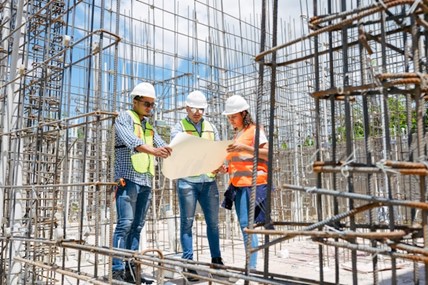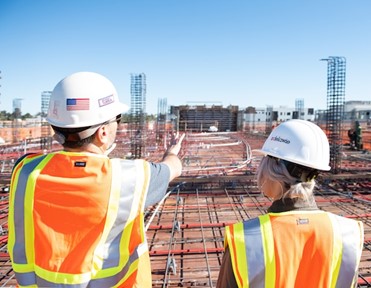
Commercial construction projects are complex endeavors that require meticulous planning, coordination, and execution to ensure success. From designing state-of-the-art office buildings to constructing sprawling retail complexes, the process of bringing a commercial construction project from blueprint to reality is a multifaceted journey that involves numerous stakeholders, timelines, and milestones. In the following article, Jason Richard Urbanowski explores the process of commercial construction project management, examining the key steps involved and the role of project managers in overseeing the entire lifecycle of a construction project.
Pre-Construction Phase
The pre-construction phase is the initial stage of a commercial construction project, where key decisions are made, and plans are laid out to set the project up for success. During this phase, project managers work closely with clients, architects, engineers, and other stakeholders to define project goals, establish budgets, and develop timelines.
Key activities in the pre-construction phase include:
- Conducting site surveys and assessments to evaluate site conditions and identify potential challenges or constraints.
- Collaborating with architects and engineers to develop design plans, blueprints, and specifications that meet the client’s requirements and comply with local building codes and regulations.
- Soliciting bids from subcontractors and vendors for various aspects of the project, such as construction, electrical, plumbing, and HVAC work.
- Developing project budgets and cost estimates, taking into account material costs, labor expenses, permits, and other project-related expenses.
Construction Phase
Once the pre-construction phase is complete and all necessary approvals and permits have been obtained, the construction phase begins. This is where the project moves from the planning stage to actual implementation, with project managers overseeing day-to-day operations to ensure that the project stays on track and within budget.
Key activities in the construction phase include:
- Mobilizing the construction team and setting up the construction site, including installing temporary facilities such as trailers, fencing, and utilities.
- Managing subcontractors and vendors, including scheduling their work, overseeing quality control, and resolving any issues or conflicts that may arise.
- Monitoring progress and performance against the project schedule and budget, identifying potential delays or cost overruns, and implementing corrective actions as needed.
- Conducting regular site inspections and safety audits to ensure compliance with safety regulations and best practices.
Post-Construction Phase
Once construction is complete and the building is ready for occupancy, the post-construction phase begins. This phase involves finalizing any remaining tasks, conducting inspections and testing, and preparing the building for turnover to the client.
Key activities in the post-construction phase include:
- Completing finishing touches, such as painting, landscaping, and signage installation.
- Conducting final inspections and testing to ensure that all systems and components meet quality standards and performance requirements.
- Developing operation and maintenance manuals for the building systems and equipment, as well as providing training to facility staff on their operation and maintenance.
- Facilitating the turnover of the building to the client, including completing any remaining paperwork, obtaining final sign-offs, and addressing any outstanding issues or punch list items.

Role of Project Managers
Throughout the entire commercial construction project lifecycle, project managers play a critical role in overseeing all aspects of the project, from planning and scheduling to budgeting and quality control. They serve as the primary point of contact for clients and stakeholders, communicating project updates, addressing concerns, and ensuring that the project stays on track to meet its objectives.
Key responsibilities of project managers include:
- Developing and managing project budgets, timelines, and resources to ensure that the project is completed on time and within budget.
- Coordinating with architects, engineers, subcontractors, and vendors to ensure that all work is completed according to specifications and quality standards.
- Resolving issues and conflicts that arise during the course of the project, including addressing changes in scope, schedule delays, and budget overruns.
- Monitoring and reporting on project progress, including tracking key performance indicators and providing regular updates to clients and stakeholders.
- Ensuring compliance with safety regulations, building codes, and other regulatory requirements throughout the project lifecycle.
Conclusion
The process of commercial construction project management is a complex and multifaceted undertaking that requires careful planning, coordination, and execution to ensure success. From the initial stages of planning and design to the final stages of construction and turnover, project managers play a crucial role in guiding the project from blueprint to reality. By leveraging their expertise, experience, and leadership skills, project managers can help deliver high-quality projects that meet client expectations, adhere to budget and schedule constraints, and stand the test of time in the built environment.